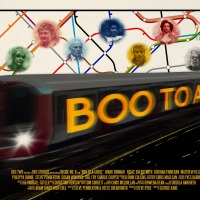 By Benjamin Wallfisch
By Benjamin Wallfisch
Watertower Music, available now
The big-screen adaptation of Stephen King’s epic horror novel gets a lush score from Annabelle: Creation‘s Benjamin Wallfisch, evoking memories of Amblin’s finest, and two grand soundtrack masters.
Those who have been collecting movie soundtracks for some time will remember all too well the truncated releases we used to get on labels like Varese Sarabande, particularly for genre scores. It was all to do with how much the US musicians’ unions dictated how much they should be paid, and the first threshold was at half an hour of music. Flash forward to 2017 and we get 38 cues and nearly 90 minutes of Benjamin Wallfisch’s terrific score.
Every 27 years fades in with a sinister rendition of Oranges and Lemons by a young child, transitioning into a simple piano melody that builds with low strings. The traditional nursery rhyme will return in latter tracks, alongside the tinkling of a music box, to horrifying effect.
Paper Boat follows young Georgie’s ill-fated journey down to the storm drains, rising to a full-blown pastoral theme that smacks of 80s John Williams. This is no accident – the score is deliberately evoking the Williams/Spielberg dynamic of classic teen adventure movies like ET.
Georgie, meet Pennywise has the sort of crashing strings and low brass blasts we’ve experienced in Williams’ Jaws or Close Encounters, while Derry is one-part Harry Potter to one-part ET, a gorgeous scene-setter that sells us the shiny American fascia to this wholesome town before its evil underbelly is exposed. Even the overhead tracking shot it accompanies feels like it’s a POV from the Extra-Terrestrial’s bike basket. It’s lyrical and beautiful.
But it’s not just Williams who gets referenced – the other Amblin or Joe Dante favourite Jerry Goldsmith (Poltergeist, Gremlins, Explorers) is echoed, particularly in River Chase, which features at its core one of those great chase themes that Jerry used to do so well.
If the main themes are hybrid Jerry Williams (or John Goldsmith!) then Beverly is pure Wallfisch, a tender, summery, piano-led theme, immediately decimated by the following, terrifying, screeching Come join the Clowns, Ed, those pesky oranges and lemons squealing again through the horror.
The many ‘attack’ cues perfectly serve the scenes that they are underscoring – loud, atonal, furious strings or dark rumbles – and inevitably become repetitive, but the character themes (Georgie’s Theme) and town-specific cues (Derry History/ January Embers) really sparkle.
The epic scale and heroic brass flourishes of He Didn’t Stutter Once and Welcome to the Losers’ Club far exceed the movie’s modest budget, proving that if you write big you can deliver the goods – and get a load of that choir!
This is a wise move, because if he’s also scoring Chapter 2 (and why wouldn’t he?) there’ll be no reason for Wallfisch to lean on the 80s’ sound due to its contemporary setting. And as the kids will have grown up, the reprisal and development of their themes will be key.
Verdict: At 87 minutes long this might actually be a bit too much content, but how nice to be able to select your favourites from this abundance of riches. He piqued my interest earlier this year with his Cure for Wellness and now Benjamin Wallfisch has proven that he can not only do a mean John Williams and Jerry Godsmith but can carve his own niche and sound in the soundtrack universe. 9/10
Nick Joy











